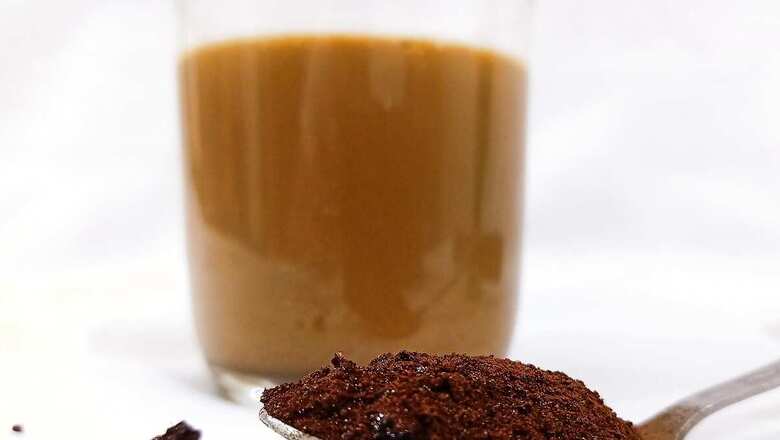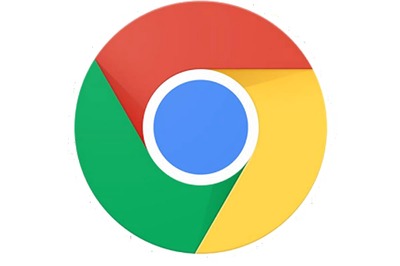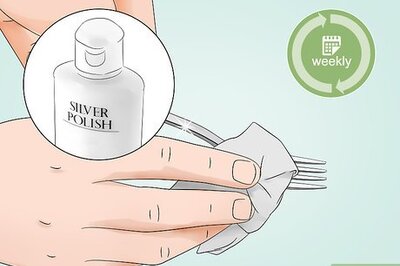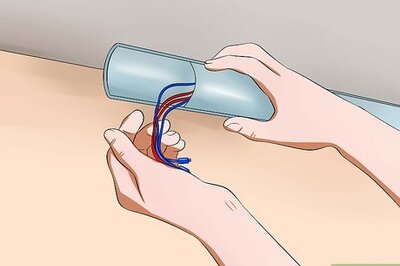
views
Revant Himatsingka, popularly known as @foodpharmer on social media with 135,000 followers on Instagram, received backlash from Mondelez India, the company that owns Bournvita, for his April 1 video where he highlighted the high sugar content of the product. Following a legal notice from the company on April 13, he deleted the video and issued an apology on his Instagram handle, while his Twitter handle has been suspended.
In a now-deleted video, he claimed that Bournvita, a health drink owned by Mondelez India, used ingredients that could lead to diabetes if consumed daily, and that one of the ingredients, a colouring agent, could cause cancer. He criticized the tagline of Bournvita as “taiyari jeet ki” (preparation for victory), suggesting it should be “taiyari diabetes ki” (preparation for diabetes).
After the video received significant attention with 12 million views on Instagram, Revant issued an apology to Cadbury, the parent company of Bournvita, and mentioned that he had received a legal notice. He took down the video and expressed that he did not plan or intend to infringe any trademark or defame any company, and requested multinational corporations (MNCs) not to pursue legal action, as he did not have the resources or interest to participate in court cases.
In response, Mondelez India released a statement rejecting Revant’s claims, stating that they were unscientific, and that he had distorted facts and made false and negative inferences. The company defended the safety and quality of Bournvita, and expressed disagreement with the allegations made by the influencer.
When Are Health supplements laden with sugar acceptable for children?
Addressing the recent concerns raised about sugar added in health drinks which when compared revealed that 4teaspoons of health drink supplement contains between 1g to 6.5g of sugar(1.2tsp) in most of the leading brands which are available over the counter. As claimed this is no doubt within the recommended amount of calories (<10%) from sugar as per WHO guidelines for a healthy child to ensure that they do not indulge in high intake of simple sugars that increases the risk of obesity and chronic diseases.
“The incidences of childhood obesity are on the rise and sugar intake is one of the reasons for weight gain. A child will not stop at this health drink but continue to indulge in sugar beverages, jams, spreads, candies, jellies, cakes, biscuits, ketchups, etc which are also the sources of sugar. One cannot eliminate this completely in a child’s diet as they are completely exposed to it, hence portion size is the key rather than eliminating it completely which later increases their craving towards it,” says Dr Edwina Raj, Head, Clinical Nutrition Dietetics, Aster CMI Hospital.
The sugar consumption of a child must be well-balanced and not exceed the quantity of the overall daily diet.
“It is relatively true that health drinks, which are supplements taken alongside milk or water have calories, proteins, minerals, micro-nutrients, and vitamins and are only given to underweight children or kids who are very selective. If the natural growth of a kid is good, then the supplements are not necessarily required,” says Dr Shreya Dubey, Consultant, Neonatology & Paediatrics, CK Birla Hospital, Gurugram.
Health supplements do have all the nutrients, but the fact can’t be ignored is they come packed with a lot of hidden sugar. “If the supplement is consumed in large size portions, there are higher chances of obesity, cardiovascular risk factors, and diabetes. Therefore, children should take these supplements, if only advised by a pediatrician,” adds Dr Dubey.
What is the recommended dosage of sugar for kids ?
“Children between the age of 2 to 18 years should have less than 6 teaspoons of sugar or 24 gms of sugar. Children less than 2 yrs should not have any added sugar,” says Dr Amish Vora, Pediatrician and Neonatal Intensivist, Bhatia Hospital Mumbai.
“This is because a lot of children now are obese, have type 2 diabetes,” adds Dr Vora. Young adults are having heart disease and heart problems with a lot of chronic and allergic conditions coming to children when they grow up. It is important to restrict them from eating a lot of processed food, carbonated and sugary drinks unless it is being medically prescribed by the doctor. “It is best to avoid over the counter products since they contain high sugar content. Most of the carbonated drinks have 10 gms of sugar per 100 ml, and since the consumption would be more than 100 ml, the sugar content increases. Some of the carbonated drinks go up to 15 gms of sugar as well,” opines Dr Vora.
How to choose what supplements are the best for your child?
A nutritionist will be able to assess your child’s current nutrient intake and will prescribe supplements if necessary based on the deficit of nutrients in daily food intake which will ensure nutritional adequacy and prevents deficiencies or toxicities of such supplements.
“Every health drink or supplement varies in composition and consists of both benefits and downside of additives in them. They are also loaded with carbohydrate between 12-17g in 4tsp of supplement which when added to milk is equivalent to one serving of cereal / chapathi consumed for breakfast. Therefore, this needs to be considered while planning a child’s daily meal to ensure we do not go overboard in feeding them which will increase the risk of being overweight and prone to lifestyle diseases,” opines Dr Raj.
We are no doubt surrounded by multiple products with nutrition labels and lengthy claims but it is equally important for every consumer to understand that no claims should be blindly accepted rather it is imperative to seek healthcare professionals , understand one s health condition and get a nutrition prescription accordingly from a Registered Dietitian.
Dr Raj believes nutritionists should help parents explore other options rather than focusing only on foods to eliminate since parents are already frustrated with child’s unhealthy eating habits.
Read all the Latest Lifestyle News here



















Comments
0 comment